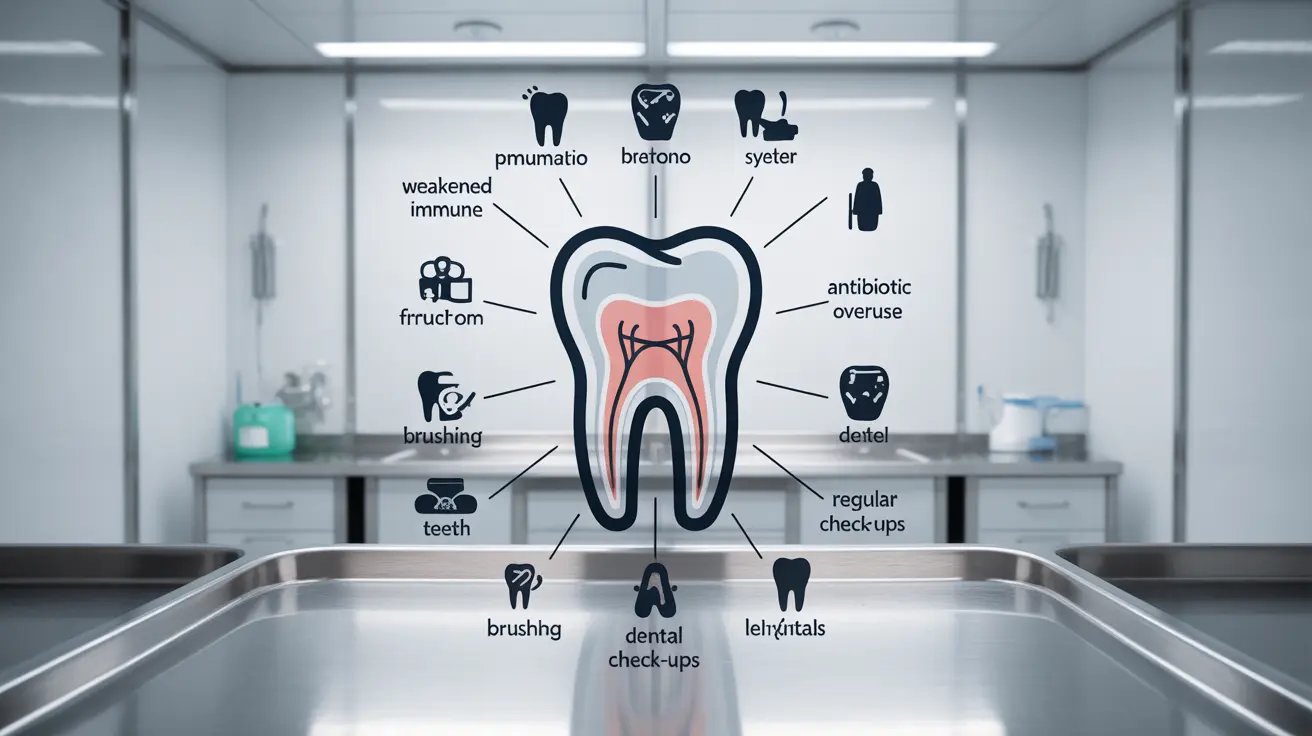Oral thrush, a common fungal infection caused by Candida albicans, often raises concerns about its contagious nature. While this condition can affect anyone, understanding its transmission, risk factors, and prevention methods is crucial for managing and avoiding infection.
This comprehensive guide will explore how thrush spreads, who's most at risk, and what steps you can take to prevent and treat this condition effectively.
How Oral Thrush Spreads
Oral thrush isn't typically considered highly contagious in healthy individuals, but certain circumstances can increase transmission risk. The Candida fungus naturally exists in most people's mouths at low levels, only causing problems when conditions allow it to overgrow.
- Close contact with infected individuals
- Sharing personal items like toothbrushes or dental appliances
- Intimate contact, such as kissing
- Mother-to-baby transmission during breastfeeding
Risk Factors and Susceptibility
Certain conditions and circumstances can make you more susceptible to developing oral thrush:
- Weakened immune system
- Recent antibiotic use
- Uncontrolled diabetes
- Use of inhaled corticosteroids
- Wearing dentures
- Dry mouth conditions
- Cancer treatments
- HIV/AIDS
Prevention Strategies
Maintaining good oral hygiene is crucial for preventing thrush infections. Key preventive measures include:
- Regular brushing and flossing
- Proper denture cleaning and maintenance
- Limiting sugar intake
- Managing underlying health conditions
- Regular dental check-ups
- Avoiding unnecessary antibiotic use
Treatment Options and Duration
Most cases of oral thrush respond well to antifungal medications. Common treatments include:
- Antifungal mouthwashes
- Oral antifungal medications
- Topical antifungal treatments
- Dietary modifications to support recovery
Treatment typically lasts 7-14 days, though some cases may require longer therapy. Most people see improvement within a few days of starting treatment.
Special Considerations for Breastfeeding
The relationship between mother and infant during breastfeeding requires special attention when managing thrush:
- Both mother and baby typically need treatment
- Breast pump parts require thorough sterilization
- Continued breastfeeding is usually safe with proper treatment
- Both parties should complete the full course of medication
Frequently Asked Questions
- Is oral thrush contagious and how can the Candida fungus spread between people?
While oral thrush isn't highly contagious among healthy individuals, it can spread through direct contact, especially when someone has a weakened immune system. The Candida fungus can transfer through kissing, sharing personal items, or between nursing mothers and infants.
- What are the common causes and risk factors that increase the chance of developing thrush?
Common risk factors include weakened immunity, antibiotic use, diabetes, corticosteroid medications, poor oral hygiene, and certain medical conditions. Infants and elderly individuals are also at higher risk.
- How can I prevent oral thrush through good oral hygiene and lifestyle habits?
Maintain good oral hygiene by brushing twice daily, flossing regularly, cleaning dentures properly, and limiting sugar intake. Managing underlying health conditions and avoiding unnecessary antibiotics also helps prevent thrush.
- What are the typical treatments available for oral thrush and how long do they take?
Treatment usually involves antifungal medications in the form of tablets, lozenges, or mouthwashes. Most cases resolve within 7-14 days of treatment, though symptoms often improve within a few days.
- Can thrush be passed between breastfeeding mothers and infants, and how is it managed in these cases?
Yes, thrush can pass between nursing mothers and babies. Both need simultaneous treatment to prevent reinfection. Treatment typically includes antifungal medication for both mother and child, along with proper hygiene practices and sterilization of feeding equipment.




